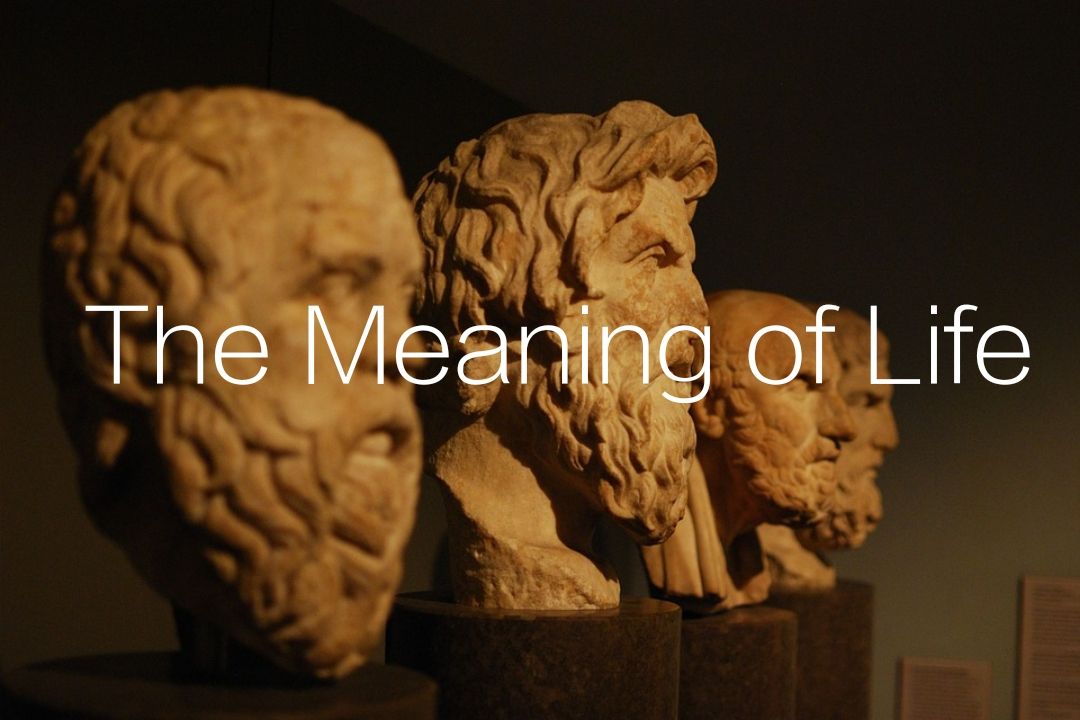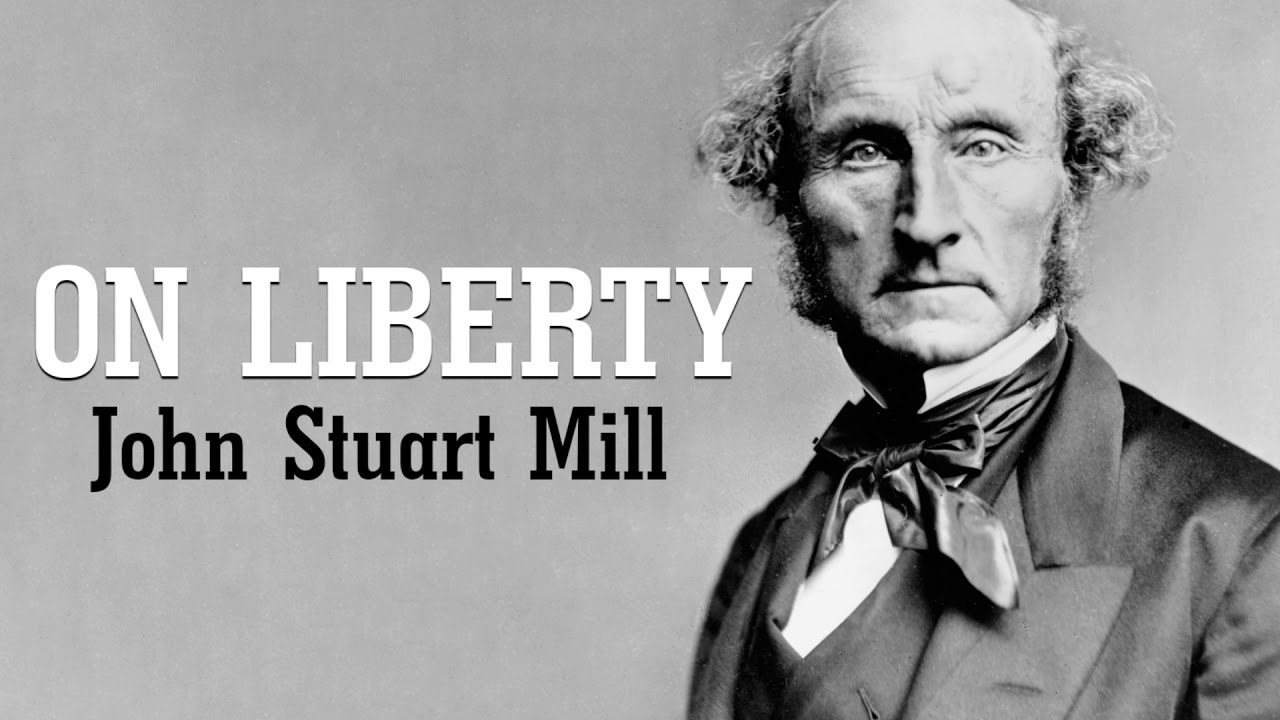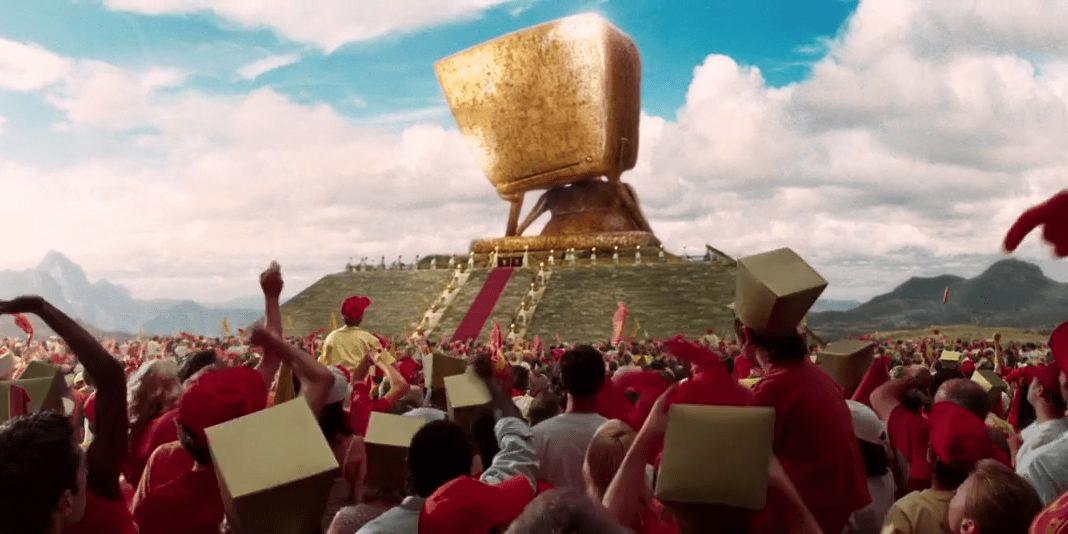
逗號就是逗號
【English Version】The Ladder of Life/当我们讨论人生的意义时我们在讨论什么

Word Count: 2659; Reading Time: 8 minutes
The Chinese Version will be updated later.
The question “What is the meaning of life?” is asking “Why does life exist?” People ask this question when they find the nothingness of human life. They are seeking a goal as a motivation for being alive. As people make decisions corresponding to their goals, the life goal is like a signpost, indicating the tendency of every movement in their life. In this way, reaching a goal like winning a Nobel Price constitutes the significance of life. Aristotle rightly claimed that “Happiness, then, is something final and self-sufficient, and is the end of action” (I 7, 1097b20-21). Arthur Schopenhauer argued that “Satisfaction consists in freedom from pain, which is the positive element of life” (The Wisdom of Life, Ch. 5). The two philosophers thought that either happy or painful feeling is the criterion of the quality of life. That is, the significance of life is subject-dependent. The happiness is decided by the relative change of what a man expects and what he has. If the difference between his expectation and the reality narrows, the man gains a sense of pleasure; If the difference expands, the man becomes miserable. It is intuitive to think of two horizontal curves fluctuating irregularly. In most cases, the lower one represents what one has, while the upper one shows the level of desire.
The life of a human can be generally divided into four classes: what he possesses, the social intercourse, his spiritual activities, and his practice. One’s practice is his interaction with the objective world. The spiritual activities and the practice are self-sufficient. “There is only one way to happiness and that is to cease worrying about things which are beyond the power of our will” (Epictetus, Discourses). People still have the expectation of earning how much money and having what kind of relationships, which are dependent on the objective material and social world. To guarantee sustainable happiness, I will introduce the ladder of life with four steps about material life, social life, spiritual life, and practical life. People consolidate their eudaimonia by climbing the ladder. This will be clear if we consider the satisfying life introduced by Confucius, Aristotle, Mill, Marx, Alfred Adler, and Arthur Schopenhauer.
People should avoid pain by saving money for their necessary needs instead of pursuing happiness in the material world. “The junzi makes plans for the sake of the dao, not for the sake of eating” (The Analects, 15.32). Confucius contempt the pursuit of wealth, and denied the material desire as a priority need. The feeling of being virtuous certainly increases happiness, which will be discussed later. However, when someone is hungry, eating can provide as much, if not more, pleasure than being virtuous, because food directly fills the huge gap between the desire of the food and the lack of the food. Epicurus described the need for food and water as the natural and necessary human needs, which should be priorly satisfied. Junzi should make plans for eating before he pursuits the dao. The basis of staying happy is to avoid pains caused by the natural and necessary needs. This is why the first step of the ladder of life is about the material world.
Nevertheless, unnecessary needs like the desire for luxury brands should be strictly limited because the desire for luxury goods grows infinitely. According to Epictetus, “Wealth consists not in having great possessions, but in having few wants” (Discourses). When a person gets a Rolex Watch, he does have a sense of pleasure, but the expectation will immediately become higher. If a person depends his happiness on the luxury, he will find himself in a situation where the gap between the desire and the reality is so big that any increase in what he possesses is relatively too small. The desire for luxury decreases human’s well-being. The desire for wealth is the abstraction of people’s needs in their material life. Money is the medium of exchange in a commercial society rather than the final end of life. According to Zhuge Liang, “Jian yi yang de [frugality cultivates virtue]” (Admonition to His Son). Being prudent can control one’s unnecessary needs and save money for the necessary needs. The material world is not a place for pursuing happiness. Not being painful for the lack of necessary needs is the most we shall expect. This step of ladder deals with what people should have.

People should cease their desire for reputation, then live a seclusion life, or have the feeling of community. “The folly of our nature which we are discussing puts forth three shoots, ambition, vanity and pride.” (Schopenhauer, The Wisdom of Life, Ch. 4). Ambition is an animal instinct that enables humans to survive in nature. We seek pride and vanity — the recognition from ourselves and others — to confirm that we have the ability to survive. This is the origin of people’s care about other’s opinions. As a person living in human society, our danger in survival is less. Ambition, vanity and pride usually bring stress and anxiety, which exceeds the amount of happiness brought by being able to survive. It is only rational to resist our impulse to pursuing other’s recognition. Schopenhauer claimed that “the sphere of what we are for other people is their consciousness, not ours; it is the kind of figure we make in their eyes, together with the thoughts which this arouses” (The Wisdom of Life, Ch. 4). Our impression on others has no direct existence to ourselves. In other words, what others think of us exists in their minds, and those thought only acts on their minds instead of the world we are exposed to. It is up to us to decide whether we care about others’ opinions or not. Alfred Adler suggested that people should separate personal tasks and other’s tasks. What others think of us is their decision that we have no right to judge. Some people may argue that the sense of honor is the source of morality, so people need to care about others’ opinions to be good citizens. If morality comes from the awareness of reputation, it will not increase people’s happiness, which will be discussed in the third step of the ladder. Therefore, people should cease the desire for reputation in social intercourses, and this is what we should do on the second step of the life ladder.
As people drop the concerns for reputation, the decision made in social life should be in the estimation of happiness. Schopenhauer introduced a pendulum swinging between pain and boredom. A dull person is not sensitive to pain, but he will be bored. People who check the mailbox from time to time and who enjoy reading news are dull persons. Only external stimulations can excite them, and when they are forced to stay with themselves, they will be bored by their dull minds. On the contrary, an intelligent, therefore susceptible, person is constantly aware of the pain, but he will never be bored. The geniuses enjoy their fulfilling spiritual world while the external only bring great minds pain. It is easy for the geniuses to escape from pain because they only need to separate the tasks. Ancient geniuses like Zhuangzi and Tao Yuanming chose to live in seclusion to avoid the disturbing social life. However, it is impossible to require all dull people to build active spirits. The persons who cannot live without external stimulation should increase the feeling of community. The feeling of community is similar to agape in the Bible, which means the general kindness or love for everyone (Alfred Adler, What Life Could Mean to You). The person with the feeling of community views everyone else as his fellow, focusing on the social interest instead of personal interest. He does not attain momentary pleasure in social intercourses but a sense of belonging, for he considers himself part of the society. In this way, the dull persons can be free from returning to themselves and experiencing boredom. Living a seclusion life or building a feeling of community is the answer for humans’ social life. The second step of the life ladder tells us where we should be.

People should develop rationality and preserve individuality on the third step of the ladder. The first two steps are the lives about the external worlds, and people need to control the desires in order to gain happiness. On the third step, the spiritual world, what a person desires is exactly what he will attain because the minds are subjective. For example, the moment a person realizes that he should be rational, he is being rational at the same time. It is then clear that we do not need to worried about dissatisfaction on the third step. The bigger the gap between the expected spirits and the current spirits, the more happiness will be generated by filling the gap. That is, desiring for the best self will present the most happiness. And the process of becoming the best self is called self-actualization. Von Humboldt also concluded that “the end of man […] is the highest and most harmonious development of his powers to a complete and consistent whole.” (The Sphere and Duties of Government, pp. 11-13). The highest development means fully displaying the uniqueness. Before exploring the uniqueness, the question “whose uniqueness” matters. “What is the meaning of life” actually puts forward two kinds of life: the human life as a species in nature, and the individual life as a man in the society.
The essential difference between humans’ and animals’ minds is that humans are rational. (Pay attention that this is the main difference between minds. The main difference in practice is the ability to objectify oneself, which will be discussed in the fourth step.) Aristotle also confirmed that the rational part of life is unique to human beings (I 7, 1098a). Animals follow the instincts that prior survival over everything. Humans can resist the animal instincts and therefore be able to perform moral deeds that harm themselves but benefit others. Confucius’ Ke ji fu li [Self-denial] asks people to control their behaviors, that is, to be rational. Being moral can promote eudaimonia because it actualizes humans’ unique value. If people are happy because being moral win reputation for them, the endless desires will only cause pain in the end.
Each individual is unique. We can see that actually the word individuality means the character of a particular person. According to Li Zehou, sensibility derives from the sensory experiences of practice (The Anthropo-Historical Ontology, p. 210). Non-identical experiences cause differences in people’s perception, which is the ability to interpret sensory information. Individuals make various decisions by their unique interpretations of the past. According to John Stuart Mill, “A person whose desires and impulses are his own—are the expression of his own nature, as it has been developed and modified by is his own culture—is said to have a character” (On Liberty, Ch. 3). People should preserve the strong desires of their own. That is, follow your heart as long as it does not harm others directly. Some people may consider a situation where society has a strong sense of discipline. Although Aristotle thought that only a good environment could cultivate virtues, people actually grow stronger personalities under a disciplinary society. For example, more Chinese involve in reflecting on the politics in China despite the internet censorship. The person who has a strong character can maintain his strong impulse even under a strong government. And a strong character is what everyone should expect in themselves. Being rational and preserving individuality together constitutes the self-actualization by developing the uniqueness of the human species and the individuals. This third step of the ladder answer the question of how people should shape their spirits.

The fourth step of the ladder of life is the hardest one. Self-transcendence can be realized by laboring and contemplation. According to Marx, “Human makes his life activity itself an object of his will and consciousness” (Economic and Philosophic Manuscripts of 1844, “Estranged Labor”). Marx stressed that humans’ uniqueness in practice is the ability to objectify the external. The core of self-transcendence is to transcend the self and relate to the greater self. Labor and contemplation are the practice that objectifies the material world and the spiritual world, in which the smaller self becomes aware of its role in the greater self. As the smaller self is part of the greater self, the objectification includes the life of the smaller self. That is, the self can view itself as an object and reflect on it. In productive life, the life of a human is considered as the mean of his own life. The person can consciously separate himself and his practical activities. Similarly, in the contemplative life, people occupy the spiritual world and attain the highest freedom and consciousness in expressing opinions (Eucken, The Meaning and Value of Life, Ch. 2). When the person looks upon on himself, he is a universal and, therefore, free being. In self-transcending, a person finds the supreme good in the universe instead of in himself and promotes eudaimonia ultimately. During the process, Marx warned people of the alienation of labor where “the worker is related to the product of his labor as to an alien object” (Economic and Philosophic Manuscripts of 1844, “Estranged Labor”). People should make sure that the products are not depriving themselves. The workers should priorly exist as an object then a worker, instead of viewing the labor as a necessity for their lives.
When people are contemplating the meaning of life, they should be careful of the alienation of their thought on a meaningful life. As humans have the ability to self-reflect, we are the only species that realizes there will be a death in a certain period of time like eighty years. That is, all of us are facing inevitable death when we are alive. People always say that it is death that imposes meaning to life. We seek the meaning of life because we know humans are mortal, and we do not want to waste it. If humans become immortal, what might happen is that we stop seeking the meaning of life, like other animals that are not aware of their deaths. We are forced by the death to contemplate the meaning of life, like the alienated workers. People become slaves of death when seeking meaning in human life. Therefore, it is hard to reach real self-transcendence for the process is easily alienated. This fourth step of the ladder tells people the ultimate path to true happiness.

In conclusion, the ladder can lead human beings to live a relatively good life, no matter which step one can climb. The first step asks people to save money only for their necessary needs. The purpose of the material world is to avoid pain instead of pursuing happiness. The second step requires people to cease their desire for reputation. The genius should live a seclusion life, while dull people can build a feeling of community. The third step is about humans’ selves. People should have rationality and preserve individuality to reach self-actualization. The fourth step encourages people to self-transcend by laboring and contemplating. The hardness increases step by step, but the higher one climbs, the more eudaimonia one can reach. The ladder consists of the meaning, significance, and goal of life. Although the meaning of life is proved to be alienated by death, exploring the meaning of life still matters. This is because happiness is easy to be misinterpreted into physical pleasure and reputation. Most people struggle in a miserable life for they know nothing about the meaning of life and how to live a good life. However, after reading this essay and learning about the meaning of life, you should forget it. Forgetting life’s meaning is part of the meaning of life. By not knowing the meaning of life can you lead an unalienated life. Just remember, the answer to the question is 42.

Works Cited:
Adler, Alfred. What Life Could Mean to You. Richmond: Oneworld, 2009.
Aristotle. Nicomachean Ethics, translated by J.A.K. Thomson. London: Penguin Books Ltd., 1976. Reprinted in In Dialogue with Humanity, 3rd ed, Vol.1, Hong Kong: Office of University General Education, The Chinese University of Hong Kong, 2013. 147-177.
Confucius. The Analects. Reprinted in In Dialogue with Humanity, 3rd ed, Vol.1, Hong Kong: Office of University General Education, The Chinese University of Hong Kong, 2013. 179-204.
Epictetus. Discourses: Book 1. Oxford: Clarendon Press, 2011.
Eucken, Rudolf. Meaning and Value of Life. Place of publication not identified: Forgotten Books, 2015.
Humboldt, Von Wilhelm. The Sphere and Duties of Government. Mansfield Centre, CT: Martino Publishing, 2014.
Li, Zehou. The Anthropo-Historical Ontology. Tianjin: Tianjin Shehui Kexueyuan Chubanshe, 2010.
Marx, Karl. Economic and Philosophic Manuscripts of 1844. Reprinted in In Dialogue with Humanity. Rev.4th. Vol.2. Hong Kong: Office of General Education, The Chinese University of Hong Kong, 2016, 165-178.
Mill, John Stuart. On Liberty. London: Penguin Books, 2010.
Schopenhauer, Arthur. The Wisdom of Life: From the Essays of Arthur Schopenhauer. Radford, Va: Wilder Publications.
Zhu, Geliang. Admonition to His Son. Chinese Text Project. Retrieved from https://ctext.org/yiwen-leiju/23/zh
All the figures are retrieved from Google Images.
喜欢我的文章吗?
别忘了给点支持与赞赏,让我知道创作的路上有你陪伴。
发布评论…